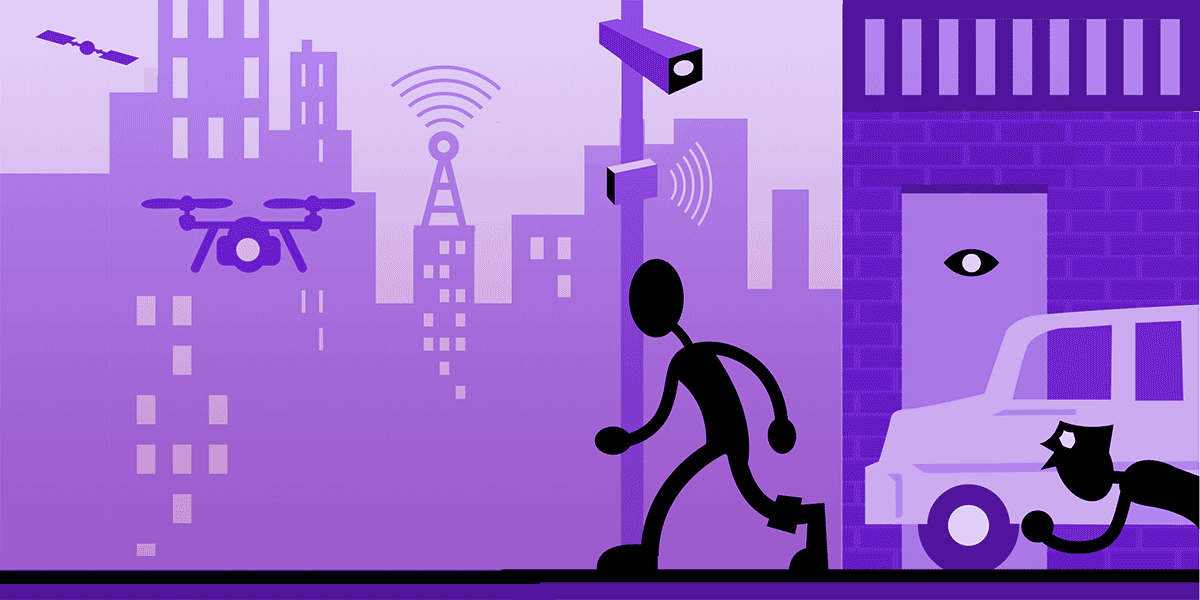Why EFF Does Not Think Recent Changes Ameliorate KOSA’s Censorship
The latest version of the Kids Online Safety Act (KOSA) did not change our critical view of the legislation. The changes have led some organizations to drop their opposition to the bill, but we still believe it is a dangerous and unconstitutional censorship bill that would empower state officials to target services and online content they do not like. We respect that different groups can come to their own conclusions about how KOSA will affect everyone’s ability to access lawful speech online. EFF, however, remains steadfast in our long-held view that imposing a vague duty of care on a broad swath of online services to mitigate specific harms based on the content of online speech will result in those services imposing age verification and content restrictions. At least one group has characterized EFF’s concerns as spreading “disinformation.” We are not. But to ensure that everyone understands why EFF continues to oppose KOSA, we wanted to break down our interpretation of the bill in more detail and compare our views to those of others—both advocates and critics.
Below, we walk through some of the most common criticisms we’ve gotten—and those criticisms the bill has received—to help explain our view of its likely impacts.
KOSA’s Effectiveness
First, and most importantly: We have serious and important disagreements with KOSA’s advocates on whether it will prevent future harm to children online. We are deeply saddened by the stories so many supporters and parents have shared about how their children were harmed online. And we want to keep talking to those parents, supporters, and lawmakers about ways in which EFF can work with them to prevent harm to children online, just as we will continue to talk with people who advocate for the benefits of social media. We believe, and have advocated for, comprehensive privacy protections as a better way to begin to address harms done to young people (and old) who have been targeted by platforms’ predatory business practices.
A line of U.S. Supreme Court cases involving efforts to prevent book sellers from disseminating certain speech, which resulted in broad, unconstitutional censorship, shows why KOSA is unconstitutional.
EFF does not think KOSA is the right approach to protecting children online, however. As we’ve said before, we think that in practice, KOSA is likely to exacerbate the risks of children being harmed online because it will place barriers on their ability to access lawful speech about addiction, eating disorders, bullying, and other important topics. We also think those restrictions will stifle minors who are trying to find their own communities online. We do not think that language added to KOSA to address that censorship concern solves the problem. We also don’t think that focusing KOSA’s regulation on design elements of online services addresses the First Amendment problems of the bill, either.
Our views of KOSA’s harmful consequences are grounded in EFF’s 34-year history of both making policy for the internet and seeing how legislation plays out once it’s passed. This is also not our first time seeing the vast difference between how a piece of legislation is promoted and what it does in practice. Recently we saw this same dynamic with FOSTA/SESTA, which was promoted by politicians and the parents of child sex trafficking victims as the way to prevent future harms. Sadly, even the politicians who initially championed it now agree that this law was not only ineffective at reducing sex trafficking online, but also created additional dangers for those same victims as well as others.
KOSA’s Duty of Care
KOSA’s core component requires an online platform or service that is likely to be accessed by young people to “exercise reasonable care in the creation and implementation of any design feature to prevent and mitigate” various harms to minors. These enumerated harms include:
- mental health disorders (anxiety, depression, eating disorders, substance use disorders, and suicidal behaviors)
- patterns of use that indicate or encourage addiction-like behaviors
- physical violence, online bullying, and harassment
Based on our understanding of the First Amendment and how all online platforms and services regulated by KOSA will navigate their legal risk, we believe that KOSA will lead to broad online censorship of lawful speech, including content designed to help children navigate and overcome the very same harms KOSA identifies.
A line of U.S. Supreme Court cases involving efforts to prevent book sellers from disseminating certain speech, which resulted in broad, unconstitutional censorship, shows why KOSA is unconstitutional.
In Smith v. California, the Supreme Court struck down an ordinance that made it a crime for a book seller to possess obscene material. The court ruled that even though obscene material is not protected by the First Amendment, the ordinance’s imposition of liability based on the mere presence of that material had a broader censorious effect because a book seller “will tend to restrict the books he sells to those he has inspected; and thus the State will have imposed a restriction upon the distribution of constitutionally protected, as well as obscene literature.” The court recognized that the “ordinance tends to impose a severe limitation on the public’s access to constitutionally protected material” because a distributor of others’ speech will react by limiting access to any borderline content that could get it into legal trouble.
Online services have even less ability to read through the millions (or sometimes billions) of pieces of content on their services than a bookseller or distributor
In Bantam Books, Inc. v. Sullivan, the Supreme Court struck down a government effort to limit the distribution of material that a state commission had deemed objectionable to minors. The commission would send notices to book distributors that identified various books and magazines they believed were objectionable and sent copies of their lists to local and state law enforcement. Book distributors reacted to these notices by stopping the circulation of the materials identified by the commission. The Supreme Court held that the commission’s efforts violated the First Amendment and once more recognized that by targeting a distributor of others’ speech, the commission’s “capacity for suppression of constitutionally protected publications” was vast.
KOSA’s duty of care creates a more far-reaching censorship threat than those that the Supreme Court struck down in Smith and Bantam Books. KOSA makes online services that host our digital speech liable should they fail to exercise reasonable care in removing or restricting minors’ access to lawful content on the topics KOSA identifies. KOSA is worse than the ordinance in Smith because the First Amendment generally protects speech about addiction, suicide, eating disorders, and the other topics KOSA singles out.
We think that online services will react to KOSA’s new liability in much the same way as the bookstore in Smith and the book distributer in Bantam Books: They will limit minors’ access to or simply remove any speech that might touch on the topics KOSA identifies, even when much of that speech is protected by the First Amendment. Worse, online services have even less ability to read through the millions (or sometimes billions) of pieces of content on their services than a bookseller or distributor who had to review hundreds or thousands of books. To comply, we expect that platforms will deploy blunt tools, either by gating off entire portions of their site to prevent minors from accessing them (more on this below) or by deploying automated filters that will over-censor speech, including speech that may be beneficial to minors seeking help with addictions or other problems KOSA identifies. (Regardless of their claims, it is not possible for a service to accurately pinpoint the content KOSA describes with automated tools.)
But as the Supreme Court ruled in Smith and Bantam Books, the First Amendment prohibits Congress from enacting a law that results in such broad censorship precisely because it limits the distribution of, and access to, lawful speech.
Moreover, the fact that KOSA singles out certain legal content—for example, speech concerning bullying—means that the bill creates content-based restrictions that are presumptively unconstitutional. The government bears the burden of showing that KOSA’s content restrictions advance a compelling government interest, are narrowly tailored to that interest, and are the least speech-restrictive means of advancing that interest. KOSA cannot satisfy this exacting standard.
The fact that KOSA singles out certain legal content—for example, speech concerning bullying—means that the bill creates content-based restrictions that are presumptively unconstitutional.
EFF agrees that the government has a compelling interest in protecting children from being harmed online. But KOSA’s broad requirement that platforms and services face liability for showing speech concerning particular topics to minors is not narrowly tailored to that interest. As said above, the broad censorship that will result will effectively limit access to a wide range of lawful speech on topics such as addiction, bullying, and eating disorders. The fact that KOSA will sweep up so much speech shows that it is far from the least speech-restrictive alternative, too.
Why the Rule of Construction Doesn’t Solve the Censorship Concern
In response to censorship concerns about the duty of care, KOSA’s authors added a rule of construction stating that nothing in the duty of care “shall be construed to require a covered platform to prevent or preclude:”
- minors from deliberately or independently searching for content, or
- the platforms or services from providing resources that prevent or mitigate the harms KOSA identifies, “including evidence-based information and clinical resources."
We understand that some interpret this language as a safeguard for online services that limits their liability if a minor happens across information on topics that KOSA identifies, and consequently, platforms hosting content aimed at mitigating addiction, bullying, or other identified harms can take comfort that they will not be sued under KOSA.
TAKE ACTION
TELL CONGRESS: OPPOSE THE KIDS ONLINE SAFETY ACT
But EFF does not believe the rule of construction will limit KOSA’s censorship, in either a practical or constitutional sense. As a practical matter, it’s not clear how an online service will be able to rely on the rule of construction’s safeguards given the diverse amount of content it likely hosts.
Take for example an online forum in which users discuss drug and alcohol abuse. It is likely to contain a range of content and views by users, some of which might describe addiction, drug use, and treatment, including negative and positive views on those points. KOSA’s rule of construction might protect the forum from a minor’s initial search for content that leads them to the forum. But once that minor starts interacting with the forum, they are likely to encounter the types of content KOSA proscribes, and the service may face liability if there is a later claim that the minor was harmed. In short, KOSA does not clarify that the initial search for the forum precludes any liability should the minor interact with the forum and experience harm later. It is also not clear how a service would prove that the minor found the forum via a search.
The near-impossible standard required to review such a large volume of content, coupled with liability for letting any harmful content through, is precisely the scenario that the Supreme Court feared
Further, the rule of construction’s protections for the forum, should it provide only resources regarding preventing or mitigating drug and alcohol abuse based on evidence-based information and clinical resources, is unlikely to be helpful. That provision assumes that the forum has the resources to review all existing content on the forum and effectively screen all future content to only permit user-generated content concerning mitigation or prevention of substance abuse. The rule of construction also requires the forum to have the subject-matter expertise necessary to judge what content is or isn’t clinically correct and evidence-based. And even that assumes that there is broad scientific consensus about all aspects of substance abuse, including its causes (which there is not).
Given that practical uncertainty and the potential hazard of getting anything wrong when it comes to minors’ access to that content, we think that the substance abuse forum will react much like the bookseller and distributor in the Supreme Court cases did: It will simply take steps to limit the ability for minors to access the content, a far easier and safer alternative than making case-by-case expert decisions regarding every piece of content on the forum.
EFF also does not believe that the Supreme Court’s decisions in Smith and Bantam Books would have been different if there had been similar KOSA-like safeguards incorporated into the regulations at issue. For example, even if the obscenity ordinance at issue in Smith had made an exception letting bookstores sell scientific books with detailed pictures of human anatomy, the bookstore still would have to exhaustively review every book it sold and separate the obscene books from the scientific. The Supreme Court rejected such burdens as offensive to the First Amendment: “It would be altogether unreasonable to demand so near an approach to omniscience.”
The near-impossible standard required to review such a large volume of content, coupled with liability for letting any harmful content through, is precisely the scenario that the Supreme Court feared. “The bookseller's self-censorship, compelled by the State, would be a censorship affecting the whole public, hardly less virulent for being privately administered,” the court wrote in Smith. “Through it, the distribution of all books, both obscene and not obscene, would be impeded.”
Those same First Amendment concerns are exponentially greater for online services hosting everyone’s speech. That is why we do not believe that KOSA’s rule of construction will prevent the broader censorship that results from the bill’s duty of care.
Finally, we do not believe the rule of construction helps the government overcome its burden on strict scrutiny to show that KOSA is narrowly tailored or restricts less speech than necessary. Instead, the rule of construction actually heightens KOSA’s violation of the First Amendment by preferencing certain viewpoints over others. The rule of construction here creates a legal preference for viewpoints that seek to mitigate the various identified harms, and punishes viewpoints that are neutral or even mildly positive of those harms. While EFF agrees that such speech may be awful, the First Amendment does not permit the government to make these viewpoint-based distinctions without satisfying strict scrutiny. It cannot meet that heavy burden with KOSA.
KOSA's Focus on Design Features Doesn’t Change Our First Amendment Concerns
KOSA supporters argue that because the duty of care and other provisions of KOSA concern an online service or platforms’ design features, the bill raises no First Amendment issues. We disagree.
It’s true enough that KOSA creates liability for services that fail to “exercise reasonable care in the creation and implementation of any design feature” to prevent the bill’s enumerated harms. But the features themselves are not what KOSA's duty of care deems harmful. Rather, the provision specifically links the design features to minors’ access to the enumerated content that KOSA deems harmful. In that way, the design features serve as little more than a distraction. The duty of care provision is not concerned per se with any design choice generally, but only those design choices that fail to mitigate minors’ access to information about depression, eating disorders, and the other identified content.
Once again, the Supreme Court’s decision in Smith shows why it’s incorrect to argue that KOSA’s regulation of design features avoids the First Amendment concerns. If the ordinance at issue in Smith regulated the way in which bookstores were designed, and imposed liability based on where booksellers placed certain offending books in their stores—for example, in the front window—we suspect that the Supreme Court would have recognized, rightly, that the design restriction was little more than an indirect effort to unconstitutionally regulate the content. The same holds true for KOSA.
TAKE ACTION
TELL CONGRESS: OPPOSE THE KIDS ONLINE SAFETY ACT
KOSA Doesn’t “Mandate” Age-Gating, But It Heavily Pushes Platforms to Do So and Provides Few Other Avenues to Comply
KOSA was amended in May 2023 to include language that was meant to ease concerns about age verification; in particular, it included explicit language that age verification is not required under the “Privacy Protections” section of the bill. The bill now states that a covered platform is not required to implement an age gating or age verification functionality to comply with KOSA.
EFF acknowledges the text of the bill and has been clear in our messaging that nothing in the proposal explicitly requires services to implement age verification. Yet it's hard to see this change as anything other than a technical dodge that will be contradicted in practice.
KOSA creates liability for any regulated platform or service that presents certain content to minors that the bill deems harmful to them. To comply with that new liability, those platforms and services’ options are limited. As we see them, the options are either to filter content for known minors or to gate content so only adults can access it. In either scenario, the linchpin is the platform knowing every user’s age so it can identify its minor users and either filter the content they see or exclude them from any content that could be deemed harmful under the law.
EFF acknowledges the text of the bill and has been clear in our messaging that nothing in the proposal explicitly requires services to implement age verification.
There’s really no way to do that without implementing age verification. Regardless of what this section of the bill says, there’s no way for platforms to block either categories of content or design features for minors without knowing the minors are minors.
We also don’t think KOSA lets platforms claim ignorance if they take steps to never learn the ages of their users. If a 16-year-old user misidentifies herself as an adult and the platform does not use age verification, it could still be held liable because it should have “reasonably known” her age. The platform’s ignorance thus could work against it later, perversely incentivizing the services to implement age verification at the outset.
EFF Remains Concerned About State Attorneys General Enforcing KOSA
Another change that KOSA’s sponsors made this year was to remove the ability of state attorneys general to enforce KOSA’s duty of care standard. We respect that some groups believe this addresses concerns that some states would misuse KOSA to target minors’ access to any information that state officials dislike, including LGBTQIA+ or sex education information. We disagree that this modest change prevents this harm. KOSA still lets state attorneys general enforce other provisions, including a section requiring certain “safeguards for minors.” Among the safeguards is a requirement that platforms “limit design features” that lead to minors spending more time on a service, including the ability to scroll through content, be notified of other content or messages, or auto playing content.
But letting an attorney general enforce KOSA’s requirement of design safeguards could be used as a proxy for targeting services that host content certain officials dislike. The attorney general would simply target the same content or service it disfavored, butinstead of claiming that it violated KOSA’s duty to care, the official instead would argue that the service failed to prevent harmful design features that minors in their state used, such as notifications or endless scrolling. We think the outcome will be the same: states are likely to use KOSA to target speech about sexual health, abortion, LBGTQIA+ topics, and a variety of other information.
KOSA Applies to Broad Swaths of the Internet, Not Just the Big Social Media Platforms
Many sites, platforms, apps, and games would have to follow KOSA’s requirements. It applies to “an online platform, online video game, messaging application, or video streaming service that connects to the internet and that is used, or is reasonably likely to be used, by a minor.”
There are some important exceptions—it doesn’t apply to services that only provide direct or group messages only, such as Signal, or to schools, libraries, nonprofits, or to ISP’s like Comcast generally. This is good—some critics of KOSA have been concerned that it would apply to websites like Archive of Our Own (AO3), a fanfiction site that allows users to read and share their work, but AO3 is a nonprofit, so it would not be covered.
But a wide variety of niche online services that are for-profit would still be regulated by KOSA. Ravelry, for example, is an online platform focused on knitters, but it is a business.
And it is an open question whether the comment and community portions of major mainstream news and sports websites are subject to KOSA. The bill exempts news and sports websites, with the huge caveat that they are exempt only so long as they are “not otherwise an online platform.” KOSA defines “online platform” as “any public-facing website, online service, online application, or mobile application that predominantly provides a community forum for user generated content.” It’s easily arguable that the New York Times’ or ESPN’s comment and forum sections are predominantly designed as places for user-generated content. Would KOSA apply only to those interactive spaces or does the exception to the exception mean the entire sites are subject to the law? The language of the bill is unclear.
Not All of KOSA’s Critics Are Right, Either
Just as we don’t agree on KOSA’s likely outcomes with many of its supporters, we also don’t agree with every critic regarding KOSA’s consequences. This isn’t surprising—the law is broad, and a major complaint is that it remains unclear how its vague language would be interpreted. So let’s address some of the more common misconceptions about the bill.
Large Social Media May Not Entirely Block Young People, But Smaller Services Might
Some people have concerns that KOSA will result in minors not being able to use social media at all. We believe a more likely scenario is that the major platforms would offer different experiences to different age groups.
They already do this in some ways—Meta currently places teens into the most restrictive content control setting on Instagram and Facebook. The company specifically updated these settings for many of the categories included in KOSA, including suicide, self-harm, and eating disorder content. Their update describes precisely what we worry KOSA would require by law: “While we allow people to share content discussing their own struggles with suicide, self-harm and eating disorders, our policy is not to recommend this content and we have been focused on ways to make it harder to find.” TikTok also has blocked some videos for users under 18. To be clear, this content filtering as a result of KOSA will be harmful and would violate the First Amendment.
Though large platforms will likely react this way, many smaller platforms will not be capable of this kind of content filtering. They very well may decide blocking young people entirely is the easiest way to protect themselves from liability. We cannot know how every platform will react if KOSA is enacted, but smaller platforms that do not already use complex automated content moderation tools will likely find it financially burdensome to implement both age verification tools and content moderation tools.
KOSA Won’t Necessarily Make Your Real Name Public by Default
One recurring fear that critics of KOSA have shared is that they will no longer to be able to use platforms anonymously. We believe this is true, but there is some nuance to it. No one should have to hand over their driver's license—or, worse, provide biometric information—just to access lawful speech on websites. But there's nothing in KOSA that would require online platforms to publicly tie your real name to your username.
Still, once someone shares information to verify their age, there’s no way for them to be certain that the data they’re handing over is not going to be retained and used by the website, or further shared or even sold. As we’ve said, KOSA doesn't technically require age verification but we think it’s the most likely outcome. Users still will be forced to trust that the website they visit, or its third-party verification service, won’t misuse their private data, including their name, age, or biometric information. Given the numerous data privacy blunders we’ve seen from companies like Meta in the past, and the general concern with data privacy that Congress seems to share with the general public (and with EFF), we believe this outcome to be extremely dangerous. Simply put: Sharing your private info with a company doesn’t necessarily make it public, but it makes it far more likely to become public than if you hadn’t shared it in the first place.
We Agree With Supporters: Government Should Study Social Media’s Effects on Minors
We know tensions are high; this is an incredibly important topic, and an emotional one. EFF does not have all the right answers regarding how to address the ways in which young people can be harmed online. Which is why we agree with KOSA’s supporters that the government should conduct much greater research on these issues. We believe that comprehensive fact-finding is the first step to both identifying the problems and legislative solutions. A provision of KOSA does require the National Academy of Sciences to research these issues and issue reports to the public. But KOSA gets this process backwards. It creates solutions to general concerns about young people being harmed without first doing the work necessary to show that the bill’s provisions address those problems. As we have said repeatedly, we do not think KOSA will address harms to young people online. We think it will exacerbate them.
Even if your stance on KOSA is different from ours, we hope we are all working toward the same goal: an internet that supports freedom, justice, and innovation for all people of the world. We don’t believe KOSA will get us there, but neither will ad hominem attacks. To that end, we look forward to more detailed analyses of the bill from its supporters, and to continuing thoughtful engagement from anyone interested in working on this critical issue.
TAKE ACTION
TELL CONGRESS: OPPOSE THE KIDS ONLINE SAFETY ACT














